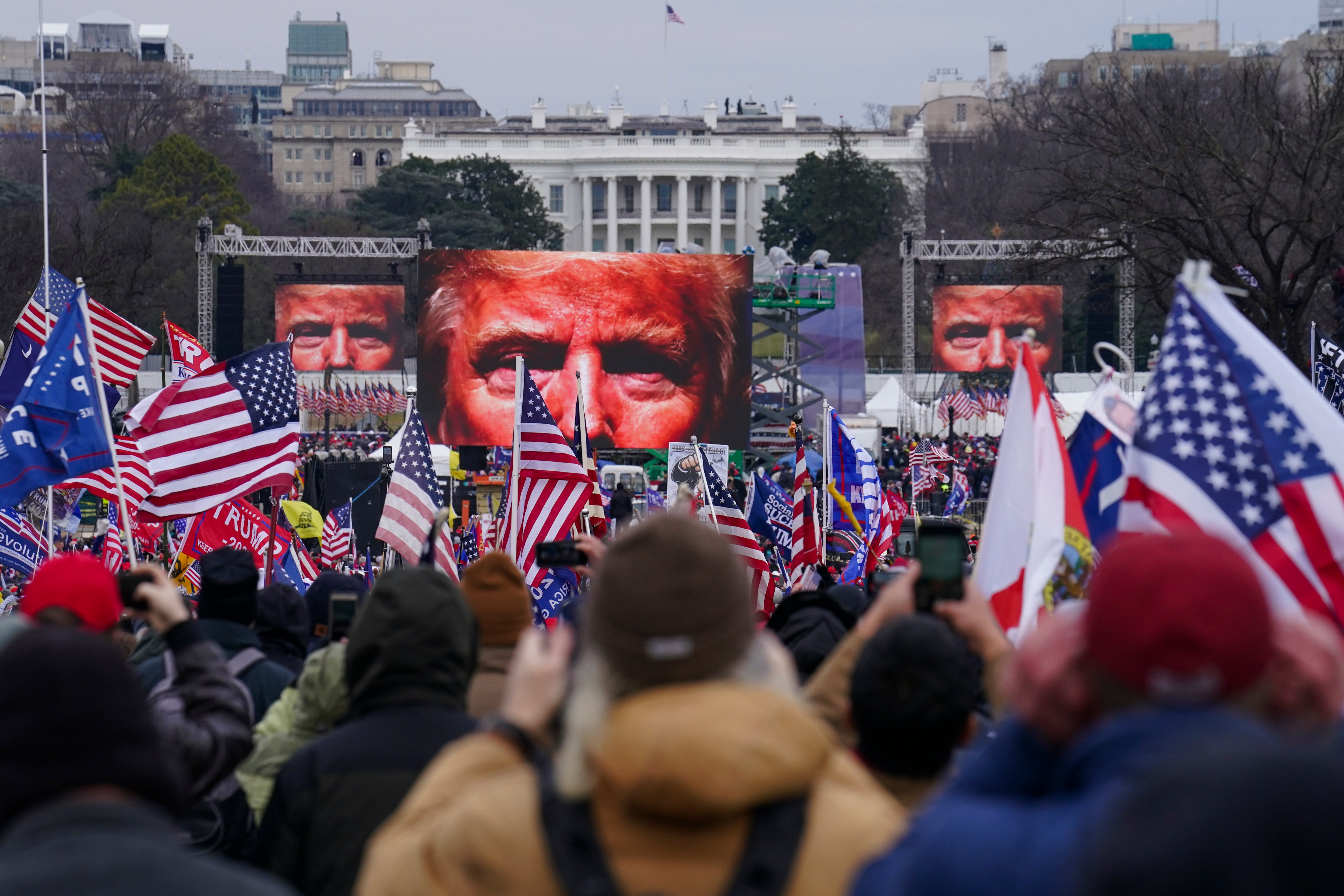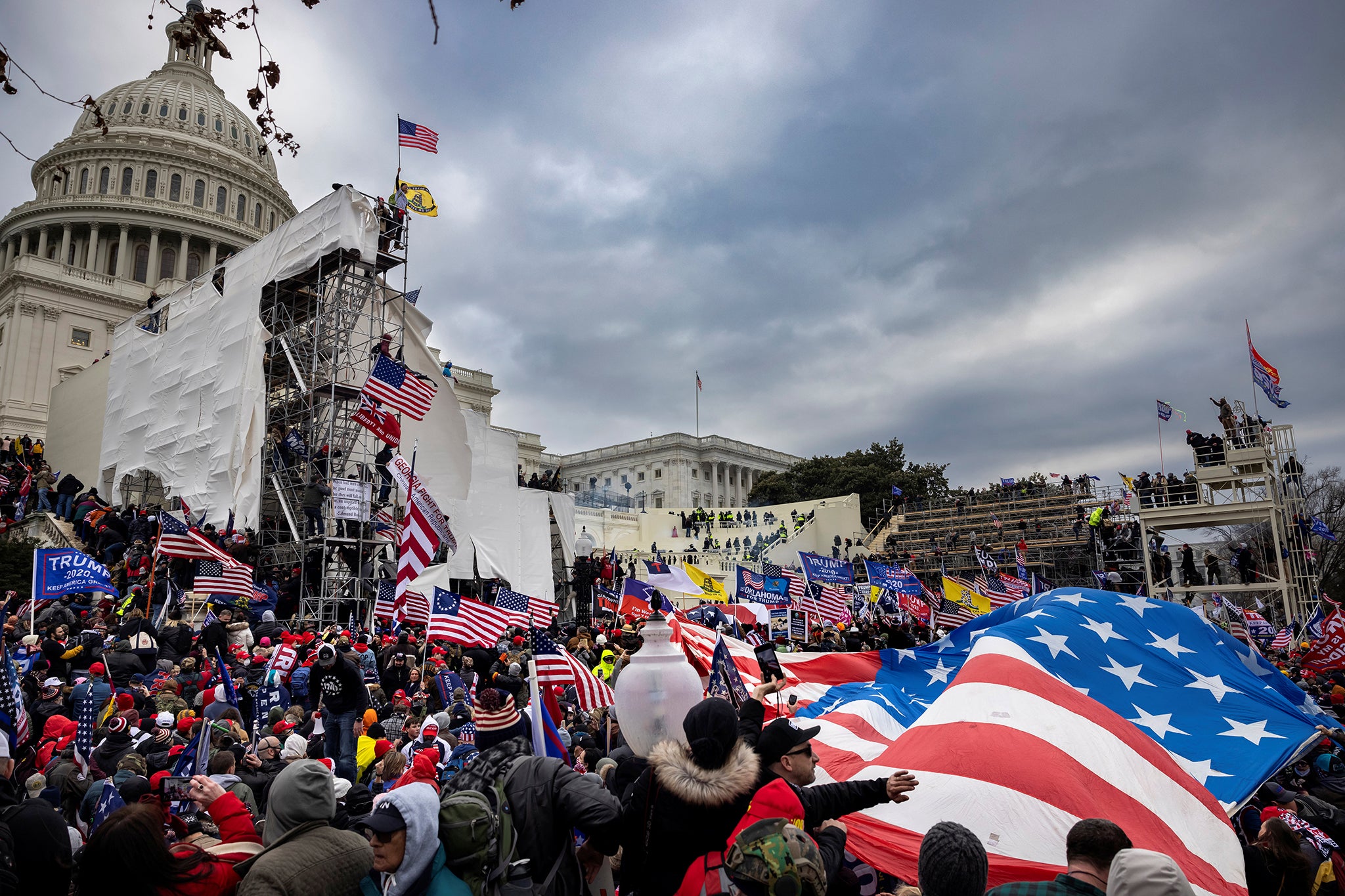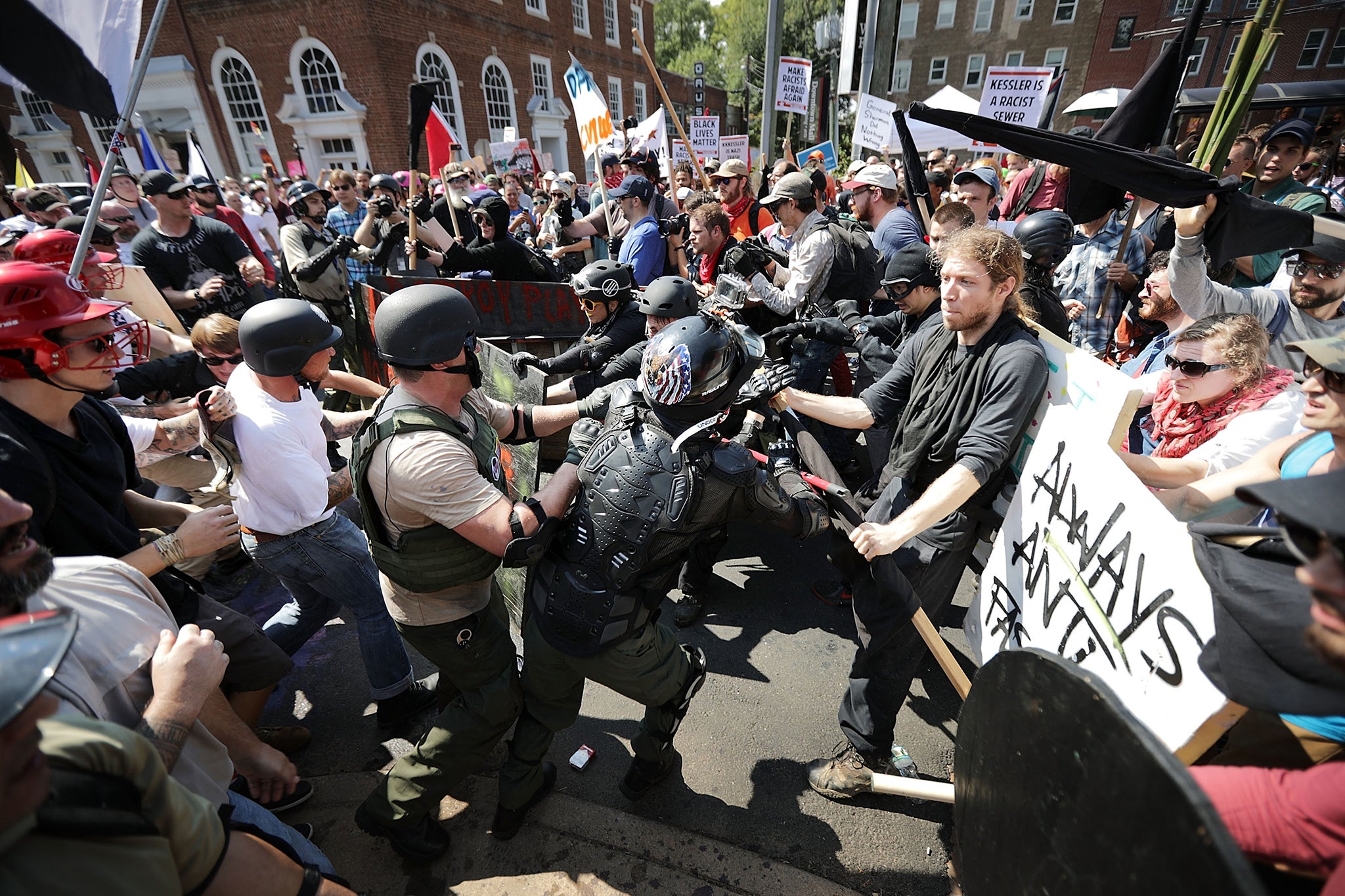Never mind Trump losing the election, America’s next civil war has already started – this is how it will end
As a new poll shows that more than a quarter of Americans believe civil war could break out after this year’s presidential election – the signs that the next one has already started are everywhere, says Stephen Marche, whose book charts what could happen next. The author tells Alex Hannaford why Trump is a symptom, not a cause, and how the nation can avoid another violent showdown...


When Stephen Marche began writing a book that imagined a future civil war in the United States of America, he repeatedly found himself having to throw out large chunks of text because the very things he conjured on the page suddenly started happening in real life: sheriffs across the country refusing to obey federal law; white power groups getting their hands on nuclear material. Marche soon realised that the civil war he was predicting had, in a way, already begun.
There is something in the air, in the streets, and even on our screens in the form of Alex Garland’s recent film Civil War, which imagines a dystopian future – the American presidency has become a dictatorship and rebels descend on the White House. And, with a new poll in The Times showing that now more than a quarter of Amercian adults believe that civil war could break out after this year’s presidential election it feels like Garland’s imagined future could be closer than we think.
Marche says that when the first civil war happened in the 1860s, very few people in America saw it coming – even when the first battle began, at Fort Sumter, near Charleston, South Carolina. There is a quote near the beginning of his book, The Next Civil War: Dispatches from the American Future, from a retired army colonel who says that a new American civil war would not be like the first one, with armies manoeuvring on the battlefield.
“I think it would very much be a free-for-all,” he said, “neighbour on neighbour, based on beliefs and skin colours and religion. And it would be horrific.”
Marche, who is Canadian and lives with his wife and children in Toronto, says that if you look at the US today, it’s really not too hard to imagine. “There are more guns than people. One out of every 11 presidents has been assassinated.” (In his book, Marche writes that it’s not surprising the US Secret Service spends a million dollars a day on keeping the president alive.)
He details the unrest around the Black Lives Matter movement, anti-government extremist “boogaloo boys” arming themselves to the teeth, and small communities in the Pacific northwest sealing themselves off in communes, claiming they don’t recognise the law.
He describes states like Texas fighting the federal government over laws governing America’s southwestern border, and so-called “lone wolf” terrorists like Dylann Roof, who killed nine Black churchgoers in Charleston, South Carolina, in 2015.

“That’s what chaos looks like,” Marche says. “And so, a new civil war is the sort of thing we’ve already seen, only much, much more continuous and much more unstoppable.”
It doesn’t seem that far-fetched, Marche says, especially when you consider that a majority of Republicans believe that the 2020 election was stolen. “That’s not a fringe minority. There is already a constitutional legitimacy crisis in the United States.”
Despite the obvious assumption that the touchpaper that ignited all this was the 6 January 2021 attack on the US Capitol building – when Trump’s supporters sought to keep him in power by preventing Congress from formalising Joe Biden’s election victory – Marche says the malaise had been brewing for years.
“When I talked to legal and political experts, the date that kept coming up was 2008,” he says, “because the housing crisis that year was where you started to fundamentally see the real death of the middle class, and the end of the notion that every generation was going to do better than the generation that came before it.

“You had things like the surge in Iraq, and the end of this moment where America could pretend to be this beneficent policeman of the world.
“Trump is very much a symptom, not a cause,” Marche continues. “The underlying problems in the United States are huge: inequality; a massive decline of trust in the legal system; a hyper-partisan duopoly between the two political parties, which creates election victories rather than plans for the future. And also a decrepit and dysfunctional constitution that is nonetheless worshipped as a religious document, even though it doesn’t really apply to the 21st century.”
You have to understand that American politics is so driven by money. They need the hatred in order to raise that money. And they need hatred in order to drive their base to the polls
The good news is that Marche believes there are ways to stop this decline into total chaos and untethered unrest. The US could, for example, assemble a constitutional convention to update its founding documents. Separation – the aim of the confederate states during the US civil war – is, Marche says, highly unlikely, but it would offer a way out.
The most realistic scenario, he believes, is to begin having open primaries. Primaries are the mechanism by which voters choose their preferred candidate for each political party to nominate in the general election.
Currently, American primaries are partisan affairs in which only registered Democrats and Republicans can vote in their respective elections. As a result, according to Marche, “the only people who vote in them are the extremists; the most dedicated fans of a party”.
Open primaries, on the other hand, would lead to “much more reasonable human beings being in government”, he says. “They inevitably get more centrist people elected because the lunatics honestly do not represent the will of the American people.”

In the immediate future, at least, that doesn’t look likely – because, as Marche points out, it’s not in the interests of either Democrats or Republicans to have open primaries.
“You have to understand that American politics is so driven by money. They need the hatred in order to raise that money. And they need hatred in order to drive their base to the polls ... People vote [because of] their loathing for the other. If you were to ask the question ‘Are you better off now than you were four years ago?’, Biden should win by a cakewalk because there’s virtually no one who would not answer yes. When you look at the numbers, [Biden] has delivered an enormous amount for his country.
“But America has entered a post-policy phase. People aren’t thinking in terms of policies at all. They’re thinking, ‘My God, I hate Donald Trump’, or ‘Biden is a piece of sh**.’”
It’s perhaps ironic that the date Marche identifies as the beginning of this dystopian nightmare is 2008, the same year Barack Obama was elected president – a man who campaigned on a message of hope and change; a rose-tinted vision of a future United States with no divisions.

But as Marche notes, hope still sells. Almost as a postscript to The Next Civil War, he writes: “None of the crises described in this book are beyond the capacity of Americans to solve.”
Perhaps that offers some small balm to those who think America is doomed; that it’s too late to unite such a divided nation. Marche recalls that the nation was united in sorrow following the assassination of JFK, and that the Civil Rights Act was supported by both parties a couple of years later.
It’s hard to see that kind of unity emerging any time soon. But if it could happen then, it can happen in the future. It’s just a question of when.
‘The Next Civil War: Dispatches from the American Future’ by Stephen Marche is published by Simon & Schuster






Join our commenting forum
Join thought-provoking conversations, follow other Independent readers and see their replies
Comments